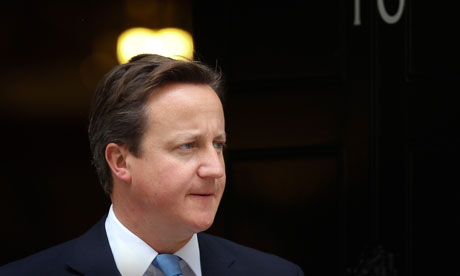 |
| I think it's in that direction. |
The idea constantly nags at the back of my mind, not only that sections of Western society and of our country in particular are partly responsible for the appalling developments in Russian society since the fall of communism, but that our own society here bears more than comfortable resemblances to Russia now.
So it is perhaps unsurprising that David Cameron sees relief in the East:
Downing Street intends for £215m worth of deals to be done between Russia and the UK when the prime minister visits the Kremlin, despite a warning to David Cameron from four former foreign secretaries that business people already operating in the country are "victims of an increasingly potent mix of corruption and lawlessness".
Their letter says hundreds of thousands of Russian businessmen are detained in jails after falling victim to corruption sanctioned by the authorities.
I don't of course mean by what I said above that Cameron and Osborne are busily puting British businessmen into clink here, but...
The exiled Russian tycoon Boris Berezovsky has warned Cameron that his decision to meet Putin is a "historical mistake" that will lead to more bloodshed inside the country. "The longer you speak with the gangster head of a country, the more victims there will be … until these cannibals are erased from the story," Berezovsky said in a telephone interview from London.
It will, of course, all fall on deaf ears. Cameron's untroubled view is:
"Russia is resource rich and services light. Britain is the opposite. In fact Britain is already one of the largest foreign direct investors in Russia. And Russian companies already account for about a quarter of all foreign initial public offerings on the London Stock Exchange"
The prime minister went on to say that Russia offered one of the strongest business environments in Europe and had some of the "lowest barriers to entrepreneurship" in the world. Britain, he said, was keen to work with the Russian government to help strengthen the business environment in the country, so that more British businesses were able to invest.


